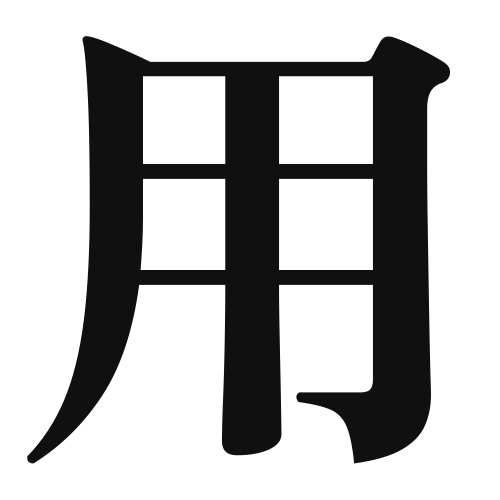1. Overview of Meaning
The kanji “用” (yō) primarily means “to use” or “to employ.” It conveys the idea of utilizing something for a specific purpose or function.
2. Formation and Radical
Formation of the Kanji: The kanji “用” is a compound character that combines elements to convey its meaning. It is derived from the combination of the character for “to use” and a phonetic component.
Radical: The radical for “用” is “用” itself, which is often associated with usage or application in various contexts.
3. Examples of Usage
Common Words and Phrases: Some frequently used words that include “用” are:
- 用途 (yōto) – purpose, use
- 利用 (riyou) – utilization
- 使用 (shiyou) – use, usage
Example Sentences in Daily Conversation:
- この道具は何に使いますか? (Kono dōgu wa nani ni tsukaimasu ka?) – What do you use this tool for?
- このアプリは便利に利用できます。 (Kono apuri wa benri ni riyou dekimasu.) – This app can be used conveniently.
4. Synonyms and Antonyms
Similar Kanji: A kanji with a similar meaning is “使” (shi), which also means “to use.” However, “使” often emphasizes the act of using something or someone, while “用” focuses more on the purpose or function.
Opposite Kanji: An antonym for “用” could be “無” (mu), which means “nothing” or “without,” indicating a lack of use or application.
5. Cultural and Historical Background
Relation to Japanese Culture: The concept of “用” is deeply embedded in Japanese culture, where the efficient use of resources is highly valued. It reflects the importance of purposefulness in daily life.
Proverbs and Idioms: One common saying is “用意周到” (yōi shūtō), which means “well-prepared” or “thoroughly ready,” emphasizing the importance of preparation and proper use of resources.
